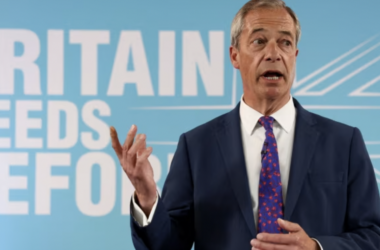Donald Trump’s prospective foreign policy, as he prepares to assume office once again in January 2025, has ignited a firestorm of debate, feeling like a revival of 19th century geopolitcs in some respects. Recent statements attributed to the president-elect—concerning Ukraine, Gaza, Greenland, Canada, and the Panama Canal—suggest a muscular approach to international relations that harks back to an era of more naked, we might say, more honest, great power politics. Whether these remarks represent concrete policy or mere rhetorical flourishes remains uncertain, but they have already provoked unease among allies and adversaries alike.
The notion of imperialism is hardly novel in American history. The Monroe Doctrine of 1823, which declared the Western Hemisphere off-limits to European colonial powers, evolved over time into a justification for U.S. intervention across Latin America and the Caribbean. From the annexation of Texas in 1845 to the occupation of Haiti in 1915, the United States has periodically wielded military and economic leverage to secure its interests. Trump’s reported musings about seizing the Panama Canal—a vital artery of global trade, ceded to Panamanian control in 1999 after nearly a century of U.S. oversight—evoke this legacy. Analysts note that such a move would likely violate international law and strain relations with Latin American nations already wary of Washington’s influence.
In Ukraine, Trump’s approach has been to send apparently contradictory messages. His disparaging remarks about President Volodymyr Zelensky—calling him a “salesman” for securing U.S. aid—contrast with his February 2025 pledge to ensure Ukraine regains sea access, a critical economic lifeline lost since Russia’s 2014 annexation of Crimea and the subsequent war. This statement, made during a White House press briefing, signals intent to counter Moscow’s Black Sea dominance, where Ukraine’s exports—grain alone worth $12 billion annually before 2022—have been choked. Coupled with his renewal of sanctions on Russia in early 2025, targeting its energy sector and “shadow fleet” of oil tankers, Trump is doubling down on economic coercion. These measures build on the Biden administration’s efforts, which slashed U.S.-Russia trade from $14.4 billion in 2022 to $2.8 billion in 2024, per U.S. Census Bureau data. Far from isolationism, this suggests a strategy to weaken Russia while bolstering Ukraine’s leverage—hardly the stance of a nation withdrawing from global entanglements.
The Gaza Strip presents another contentious arena. Trump’s tenure from 2017 to 2021 saw unwavering support for Israel, exemplified by the relocation of the U.S. embassy to Jerusalem and the Abraham Accords, which normalised ties between Israel and several Arab states. His recent comments on Gaza’s “development potential” have raised eyebrows, with critics accusing him of treating the enclave—home to 2.1 million Palestinians, many living in dire poverty—as a real-estate opportunity rather than a humanitarian crisis. The comparison to colonial exploitation is not far-fetched: Israel’s occupation, backed by U.S. aid averaging $3.8 billion annually, has long drawn parallels to historical examples like Britain’s rule over India, where economic extraction coexisted with political subjugation.
Greenland, an autonomous territory of Denmark, has emerged as an unlikely flashpoint. Trump’s 2019 proposal to purchase the island—rich in rare-earth minerals and strategically positioned in the Arctic—was met with derision in Copenhagen, which rebuffed the idea as “absurd.” Yet the president-elect has reportedly revived the notion, framing it as a matter of national security amid growing Chinese and Russian interest in the region. The Arctic’s melting ice caps have unlocked new shipping routes and resources—Greenland’s mineral deposits alone are valued at tens of billions of dollars—making it a geopolitical prize. Critics liken this to France’s 19th-century colonisation of resource-rich Algeria, warning that any attempt to strong-arm Denmark could fracture NATO unity.
Closer to home, Trump’s offhand suggestion that Canada could become the “51st state” has rankled Ottawa. While likely intended as a jab at Prime Minister Justin Trudeau, with whom Trump has clashed over trade, the remark underscores a broader dismissiveness toward Canadian sovereignty. The U.S.-Canada relationship, underpinned by a $718 billion trade partnership in 2023 (per U.S. Census Bureau data), has weathered past tensions, but such rhetoric risks alienating a key ally at a time when North American cohesion is vital to counter China’s economic rise.
The Panama Canal, meanwhile, remains a symbol of American engineering—and hegemony. Trump’s assertion that the U.S. should “take it back” ignores the 1977 Torrijos-Carter Treaties, which transferred control to Panama after decades of U.S. administration. The canal handles 5% of global maritime trade, generating $2.5 billion in annual revenue for Panama, a sum that underpins its economy. Any hint of American reclamation would likely provoke a backlash across the hemisphere, reviving memories of “gunboat diplomacy” like the 1903 U.S.-backed secession of Panama from Colombia.
Critics of Trump’s worldview argue that it reflects a discredited imperial playbook—one that prioritises short-term gains over long-term stability. Historical precedents abound: Britain’s overreach in its colonies hastened the empire’s decline, while America’s own misadventures, from Vietnam to Iraq, underscore the limits of unilateral power. A 2024 Pew Research survey found that 54% of Americans favour a less interventionist foreign policy, suggesting domestic appetite for such ventures may be waning. Yet Trump’s base, galvanised by promises of national greatness, may cheer the bravado.
The stakes are high. A return to old-school imperialism could alienate allies, embolden rivals, and destabilise regions already on edge. Ukraine’s war, Gaza’s plight, and the Arctic’s scramble for resources demand deft diplomacy, not blunt force.




